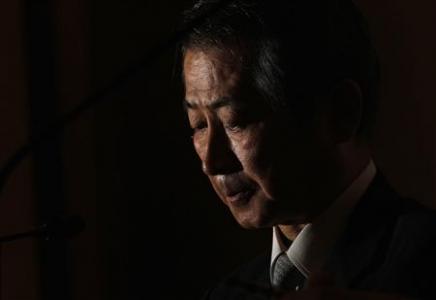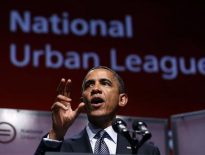(Reuters) – Nomura Holdings Inc (8604.T) will appoint securities unit head Koji Nagai as its new CEO on Thursday, two sources with knowledge of the matter said, after Kenichi Watanabe quit to take responsibility for an insider trading scandal at Japan’s top investment bank.

People with knowledge of the situation had earlier said the resignations of Watanabe and his top lieutenant, Takumi Shibata, were approved at a board meeting on Thursday morning.
The departure of the architects of Nomura’s takeover of the Asian and European assets of Lehman Brothers raises questions about the future of the global expansion strategy they pursued.
Nomura has not confirmed the moves, but said it would hold a news conference at 05.00 a.m. EDT on its management structure and to give an update on its internal investigation into leaks of insider information to clients of its securities unit in 2010.
Nagai, a three-decade company veteran, took over that unit in April as part of a management reshuffle. Shibata will be replaced as chief operating officer by Atsushi Yoshikawa, the head of its U.S. operations.
Nomura’s shake-up comes a month after the bank cut pay for both of its top executives in response to the third insider trading scandal since Watanabe, who joined the bank in 1975, took the helm four years ago.
“When you look at their history, the number of scandals, this was the last straw,” said Jim Sinegal, an analyst with Morningstar research house.
Investors reacted positively, bidding Nomura shares up nearly 6 percent ahead of its fiscal first quarter earnings, which saw the bank report a net profit of 1.89 billion yen ($24.2 million), against a profit of 17.7 billion yen in the same period last year. The consensus of eight analysts was for a profit of 500 million yen. Earnings were hit by slumping mutual fund sales and stock trading commissions.
At the start of a news briefing on the results, CFO Junko Nakagawa apologized for the insider trading scandal and promised to bolster internal controls. She and three other executives bowed in apology.
“I can’t say that there is no impact on our earnings,” she said. “It is difficult at this stage to numerically estimate the possible damage. All we want to do is make efforts to regain trust.”
AT LOGGERHEADS WITH REGULATORS
Nagai joined Nomura in 1981 after graduating from the law department of Chuo University. He gained experience in both retail and corporate banking as he rose up the ranks to co-chief operating officer (COO) of Nomura Securities last year.
The resignation of Watanabe, 59, had been expected by many inside Nomura since signs emerged that the bank’s leadership was at loggerheads with Japan’s financial regulators, which accused Nomura of being slow to respond to an investigation into insider trading practices that had grown rampant in the Tokyo market.
The turmoil comes as the industry globally finds itself under huge financial and regulatory pressure.
Investment banks have been hammered both by falling trading and advisory income as clients pull back from markets due to the euro zone debt crisis, and by political calls for a change in their culture after a string of scandals, most recently over the fixing of interest rate benchmarks.
Watanabe and Shibata, Nomura’s chief operating officer, oversaw the troubled 2008 attempt to absorb assets of failed U.S. bank Lehman Brothers and a key question for their successors will be whether to follow their ambitious plans for worldwide expansion.
That strategy was dealt a blow earlier this year with the abrupt departure of Jasjit Bhattal, Lehman’s former Asia Pacific CEO who helped broker the deal, and who had been seen as a possible successor to Watanabe.
Global rivals Goldman Sachs (GS.N) and Credit Suisse Group (CSGN.VX) twinned their quarterly reports with additional restructuring, but Nakagawa said Nomura had no plans for additional cost cuts on top of the $1.2 billion savings drive launched last year.
Moody’s Investors Service cut its debt rating on Nomura to one notch above speculative or “junk” grade in March, citing concerns about the long-term profitability of its overseas operations.
Nomura booked a pretax loss of 12.1 billion yen in the latest quarter overseas, but that was about half the loss in the previous quarter – suggesting the cost-cutting plan is starting to bear some fruit.
INSIDE TIPS
The scandal that brought down the bank’s leaders dates back to 2010. Nomura has confirmed it was the source of leaks on planned share offerings by energy firm Inpex (1605.T), Mizuho Financial Group (8411.T) and Tokyo Electric Power (9501.T).
In all three cases, employees in its institutional sales department provided the tip-offs.
A panel of attorneys brought in by Nomura to investigate the insider trading cases said it found equity sales staff would regularly pump colleagues for inside information about upcoming stock offerings and then share tips with investors.
Watanabe’s decision to step down was welcomed by Tsutomu Okubo, the lead director of a ruling Democratic Party of Japan committee that has been crafting stronger insider trading rules.
“I applaud Watanabe’s resignation from the perspective that it is aimed at leading to a reform of the securities industry,” Okubo told reporters.
Nomura, Japan’s largest brokerage, is awaiting possible sanctions from Japan’s Financial Services Agency but the scandal has already cost it clients.
Some asset managers have stopped trading with the firm to meet their own compliance rules and it has lost underwriting business, including being left off the government’s sale of $6 billion worth of Japan Tobacco (2914.T) shares.
Shares of Nomura have fallen in value by more than a third since the first insider trading case emerged in March. That compares with a 10 percent fall in the Japanese securities sub-index .IFINS.T during the same period.
Scandals have forced Nomura to change executive leadership twice since the collapse of Japan’s asset bubble. In 1991, then-President Yoshihisa Tabuchi resigned after the brokerage admitted to compensating favored clients for stock losses.
In 1997, President Hideo Sakamaki stepped down after the bank was found to have channeled more than $3 million to a gangster in order to keep him from raising trouble at its 1995 shareholder meeting.
(Additional reporting by Mayumi Negishi and Jochelle Mendonca; Writing by Kevin Krolicki in Tokyo and Alex Richardson in Singapore; Editing by Dean Yates)





